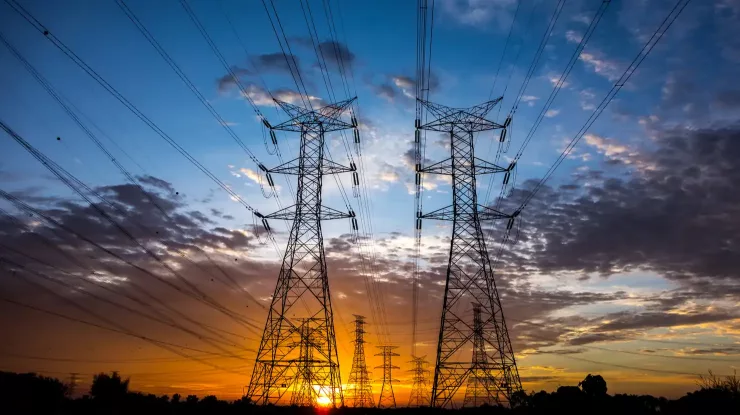If you’re a business owner in Texas, you need to know that Ancillary Services could be passed through on your bill, depending on your contract language.
Ancillary Services are processes that help the ERCOT grid maintain a stable, efficient and safe operation. These processes and tools let ERCOT control voltage, frequency, flow and system recovery if there’s an emergency event. And new ancillary services charges in Texas could show up as line items in your business electricity bill.
What are Ancillary Services?
Within the power grid, demand and supply must balance to avoid outages and possible system catastrophe. ERCOT uses Ancillary Services to help maintain reliability in the Texas grid.
Eric Bratcher from our partner 5 explains it this way. “The role Ancillary Services play in the market is similar to the player that is standing on the sideline, ready to get into the game if needed. They’re the second string quarterback. You hope they aren’t needed, but in times of emergency, they become very valuable.”
There are 4 ancillary services in the ERCOT market:
- Regulation Service – Up
- Regulation Service – Down
- Responsive Reserve Service
- Non-spinning Reserve Service
ERCOT uses Regulation Service Up and Down to balance the grid when supply and demand fluctuate due to weather, generation outages, or transmission outages. They use Responsive Reserves and Non-Spinning Reserves if the grid is close to entering a state of emergency.
Texas power generators can bid some of their generation into the Ancillary Services market. These prices are typically set in real-time based on the market need.
Texas Retail Electricity Providers (REPs) contract for their power ahead of time, a practice called hedging. This allows them to offer fixed rate electricity contracts to residential and small business owners.
But REPs have a limited ability to secure Ancillary Services ahead of time. Instead they pay for Ancillary Services based on the clearing price set on the open market. And they make some assumptions on what those costs will be, based on historical information.
After Winter Storm Uri Ancillary Services became substantially more expensive. Retailers must purchase more Ancillary Services than they did previously, at a higher cost. Some retailers have passed this through as a line item on their bill, citing it as a regulatory change.
What Types of Companies Pay Ancillary Services in ERCOT?
Ancillary services are most likely to appear on large commercial and industrial electricity bills, such as electricity bills for manufacturing or electricity bills for hospitals.
If you are a Texas small business with under 50KW peak demand, your REP can not pass through Ancillary Services Charges in Texas. But you should always review your electricity contract before you sign it.
Make sure your Ancillary Services Charges are secure and not a pass-through. An energy broker can help you understand any pass-through language in your contract.
What Happened to Ancillary Services in Texas During Winter Storm Uri (February 2021)?
According to a report from the University of Houston, more than two-thirds of Texans lost electricity during Winter Storm Uri, with almost half losing access to running water. During the storm, multiple generation assets went offline, causing blackouts. To balance the grid and maintain stability, ERCOT called on Ancillary Services.
Prices for Ancillary Services change every hour of the day, similar to wholesale energy. However, ERCOT had a cap of $9,000 per MWh in place during the winter storm. Without a market cap, Ancillary Services cleared prices as high as $25,000 per MWh.
Some consumers received unexpected high bills due to Ancillary Services pass throughs. And found themselves wondering…
What is an Ancillary Charge on Electric Bill?
An Ancillary Services Charge on your electric bill means that your electricity provider is passing through non-energy costs.
After February 2021, some Texas businesses were surprised by line items for Supplemental Ancillary Charges. They thought they had a fixed rate contract. The supplier notified them of the pass-through, telling them the following:
- Non-energy costs include ancillary costs that are billed by ERCOT and your local utility that distributes the power. Ancillary costs are determined by ERCOT and your local utility for maintaining the integrity of the electric grid and as such performed rolling outages during the storm event. Ancillary costs are market-driven and can increase significantly during extreme weather events.
- Non-energy costs such as ancillaries are not fixed and are passed through based on changes in the ERCOT tariff rates or market prices. You will see a new line item on your bill, Supplemental Ancillary Charges, for the increase in ancillary rates.
Eventually, that supplier backed off these Supplemental Ancillary Charges for residential and small commercial customers due to regulatory requirements. However, several of this supplier’s large customers filed a class action lawsuit in June 2021.
If you’re concerned about ancillary charges on your electricity bill, here are the key things to watch for.
Key Takeaways – What to do When There’s an Ancillary Charge on Your Texas Electric Bill:
Review your Texas electricity bill to check for Ancillary Service Charges.
If you are a small commercial customer in Texas with under 50 KW peak demand, your REP can not pass through Ancillary Service Charges. Note that they may have been passed through to you after August 2022 as due to “changes in law.” If these charges appear on your bill, contact your REP.
The situation for large commercial customers depends on the type of electricity contract.
For a large commercial customer with an Index Rate, your agreement likely allows pass through of Ancillary Service Charges.
Large commercial customers with a Fixed Rate electricity agreement should check their contract. Look for sections labeled Price, Invoicing or Cost Components. Check these sections to see if your REP can pass through non-energy charges such as Ancillary Service Charges.
In all cases, read your business electricity contract before you sign it. And if you have questions, call ElectricityPlans.com at 844-214-5559.
